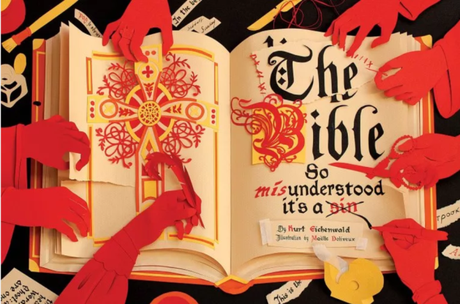
I’m exploring the claims of a Newsweek article that portrays the Bible as the result of controversy, disagreement and powerplay. My first blog in this series is here.
Here’s another claim made by the Newsweek article.
CLAIM – The orthodox beliefs of Christianity Emerged and Evolved over Time, and were Solidified Later in the New Testament.
Newsweek claim that “Scribes added whole sections of the New Testament, and removed words and sentences that contradicted emerging orthodox beliefs.”[1] In other words, Christian belief was extremely varied in the first century, and didn’t form properly until under the religious and political control of the third century, primarily under the Roman Emperor Constantine.
Scholar Bart Ehrman has popularised these idea in his book Lost Christianities.[2] Kruger summarises Ehrman’s conclusion, saying “the earliest proponents of what later became orthodox … triumphed over all other legitimate representations of Christianity … [they got the] last laugh by sealing the victory, finalizing the New Testament, and choosing the documents that best suited their purpose and theology.”[3] This leads to the conclusion that Christian “truth is inherently subjective and a function of power.”[4]
It is true that theological disputes arose in the Christian church during the late second, and early third centuries. The church had to decide what they believed about essential Christian doctrines, like the identity of Jesus Christ. Is he to be worshiped as God or not? How do we understand God the Father and God the Holy Spirit? How does Christ relate to them, and what about his divine and human natures? These and many more issues formed later debate in the Church. Ehrman, however, seems to imply these sorts of debates characterise first century Christianity from the very start. In other words, to begin with there was no such thing as orthodox Christianity, just various groups espousing conflicting and incompatible ideas.
The problem with this notion is that it misrepresents the essential unity of Christian belief that existed in the first century. It paints a picture of Christian belief going from diverse to unified much later on under political and religious control.
No. That’s turning things on their head.
I think if we take the evidence from history at face value, then the situation is the exact opposite to this. Christianity DID BEGIN as a unified system of belief, and the New Testament was written within that unified system of belief. It was only as time passed that questions arose and debates ensued around the deity of Christ (for example).
Kostenberger highlights three strands of essential Christian unity from the start that are reflected in the New Testament as originally written and reflected in earliest Christian belief (see previous blog for details):
1 – Monotheism: the belief in a single God Yahweh as revealed in the Hebrew scriptures.
2 – Jesus as the Christ and Exalted Lord: this was the initial, unified Christian belief. Disagreements on how to understand this came much later after the New Testament was written.
3 – The Saving Message of the Christian Gospel
Aside from the excellent and early first/second century documentary evidence I pointed to in my previous blog, why would it be reasonable to expect unified early Christian belief anyway? Because this expectation fits with the cultural expectations that Christianity was birthed into. The first Christians were Jewish. They started with the Hebrew scriptures, which read like a story in search of a conclusion. They had the written terms of Israel’s original covenant, and they were waiting for the continuation and completion of God’s covenant with them. The first Jewish Christians believed the words of Jesus and his authorised Apostles to be the terms of this new covenant.
The first Christian beliefs weren’t just unified, they also expected the terms to be written down as scriptures; the terms of this new covenant. They received them in the first century in the canonical books and letters of the New Testament, recognised as the formal New Testament canon much later.
Conclusion
Contrary to Newsweek’s claim, the evidence suggests orthodox unified belief wasn’t arrived at later. The church began with an essential unified core of belief, and disagreements around how to understand this unified core came later.
This means that the New Testament is the product of an original, unified belief, not an evolution of beliefs over time. So – we can take the claims it makes about Christ, his life and our need of salvation seriously.
[1] Kurt Eichenwald, The Bible: So Misunderstood It’s a Sin, Newsweek, published 23rd December, 2014, accessed 10th October, 2019, https://www.newsweek.com/2015/01/02/thats-not-what-bible-says-294018.html.
[2] Bart Ehrman, Lost Christianities, (Oxford University Press, 2005).
[3] Andreas J. Kostenberger and Michael J. Kruger, The Heresy of Orthodoxy, (Wheaton: Crossway, 2010), 32.
[4] Kostenberger, 39.
